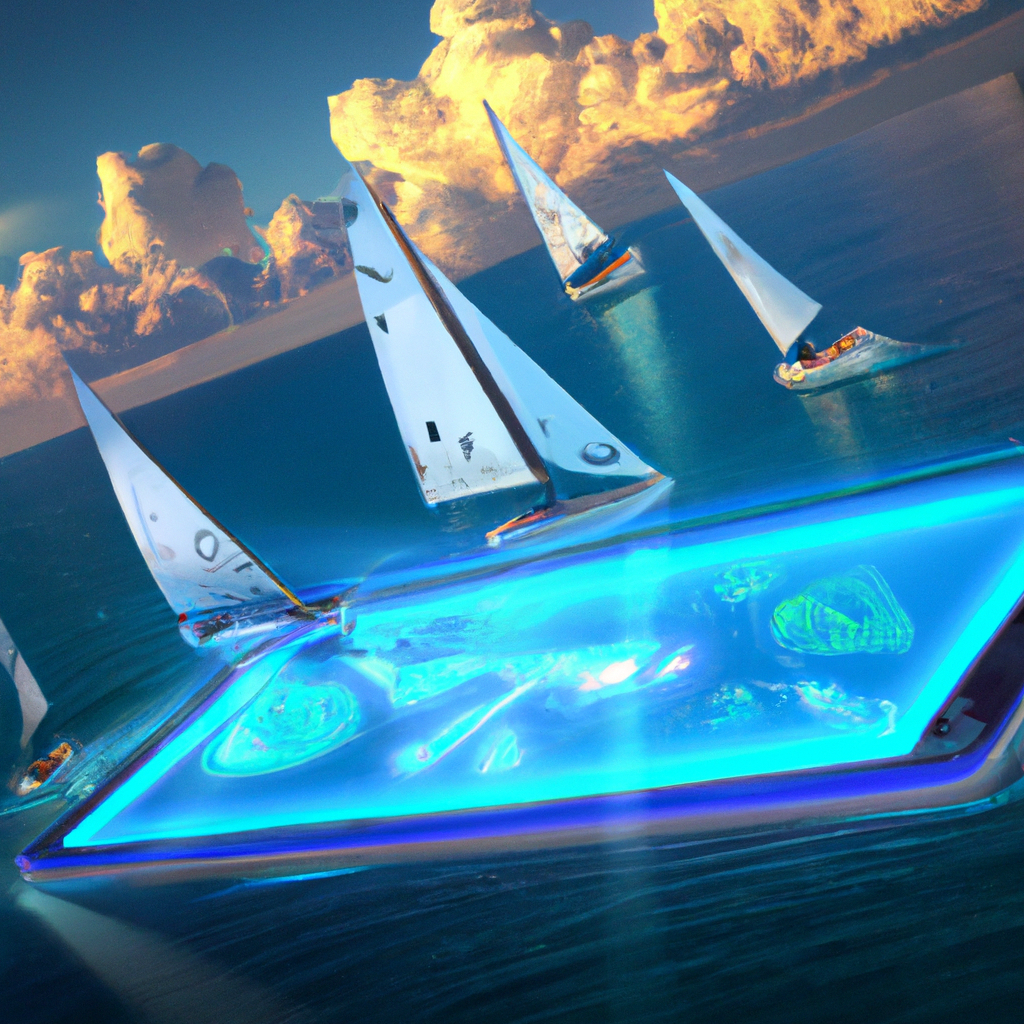Sailing in Cyberspace: Virtual Challenges and Competitions Transforming the Nautical Community

The nautical world is experiencing an unprecedented digital revolution, giving rise to a new era of competitions and challenges taking place in a completely virtual environment. This paradigm shift is profoundly impacting the way nautical sports enthusiasts participate and compete. The following article will explore this emerging phenomenon in depth, looking at how these virtual competitions are changing the landscape of sailing, the challenges and opportunities they present, and the vision for the future for this fascinating community. Let’s delve into the exciting world of virtual competitions and challenges for the sailing community.
- 1. "The digital revolution in the nautical world: Virtual challenges and competitions"
- 2. "How virtual competitions are changing the sailing landscape"
- 3. "Challenges and opportunities in virtual nautical competitions"
- 4. "Exploring the future of sailing: Skills and challenges in virtual space"
1. "The digital revolution in the nautical world: Virtual challenges and competitions"
The digital revolution has reached the nautical world, transforming the way challenges and competitions are carried out. With in-person events unable to be held due to pandemic restrictions, the nautical community has found a space in virtuality to continue competing, learning and sharing their passion. Virtual sailing, regattas and rowing competitions have become increasingly popular, allowing participants to compete from anywhere in the world. These events not only offer a safe alternative during these uncertain times, but also open up new possibilities for the inclusion and globalization of nautical sport. However, this digital transformation also presents challenges, such as the need to adapt competition rules and regulations to a virtual environment, or the digital divide that can limit the participation of some members of the nautical community.
2. "How virtual competitions are changing the sailing landscape"
Virtual competitions are revolutionising the sailing landscape by removing geographical barriers and allowing people around the world to take part in sailing events without leaving home. These competitions use advanced simulation technologies to recreate sea, wind and weather conditions, providing an authentic sailing experience. In addition, virtual racing platforms offer participants the opportunity to compete against other sailors in real-time, adding a level of competition and social interaction previously exclusive to physical competitions. The emergence of these virtual competitions is democratising the sport of sailing, allowing more people to experience the thrill and challenge of competitive sailing. At the same time, it is driving innovation in sailing technology and opening up new opportunities for training and learning.
3. "Challenges and opportunities in virtual nautical competitions"
Virtual sailing competitions present both challenges and opportunities for the sailing community. Among the challenges is the need to accurately replicate sea and sailing conditions in a digital environment, which requires advanced technology and constant updates. In addition, the lack of physical interaction and the need to rely on a stable internet connection can detract from the authenticity of the experience. However, these competitions also offer significant opportunities. They allow participants from around the world to compete without having to travel, which reduces costs and makes participation more accessible. In addition, the virtual nature of these competitions allows for experimentation with new rules and competition formats. Finally, these platforms can be a valuable tool for training and practice, allowing sailors to acquire and hone their skills in a safe and controlled environment.
4. "Exploring the future of sailing: Skills and challenges in virtual space"
The future of sailing is full of innovative possibilities, and one of the most exciting is the conduct of competitions and challenges in virtual space. With the growing popularity and development of technologies such as virtual reality and sailing simulators, new opportunities are opening up for the sailing community to participate in competitions without leaving the comfort of their home. These virtual challenges, which can range from sailboat races to tests of sailing skills, offer a safe and accessible way of participating in sailing, as well as allowing interaction and competition with enthusiasts from all over the world. Thus, the future of sailing lies not only in the vast oceans of the planet, but also in the infinite cyberspace.
